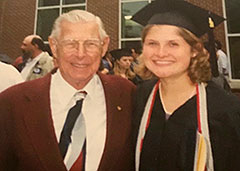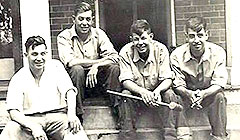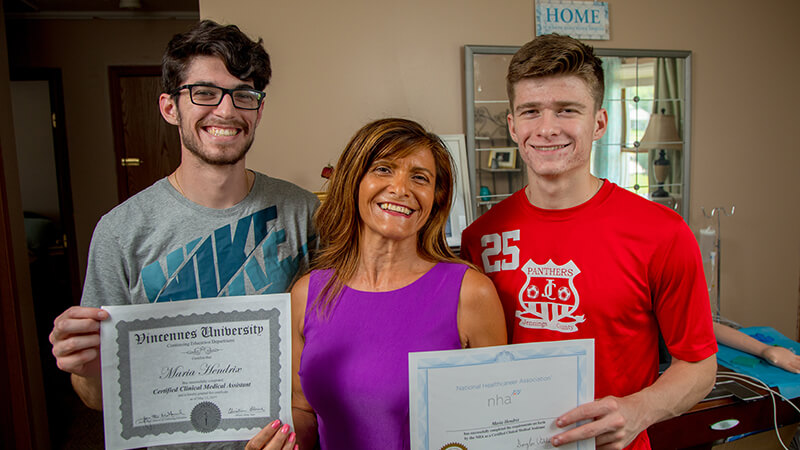The smartest man I’ve ever known was my grandfather. A child of immigrants, he came of age during the Great Depression, served his country in World War II as an Air Force mechanic, and was an entrepreneur his entire life. He was an accomplished artist, a skilled carpenter and electrician, and a relentless tinkerer. He never stopped learning. Indeed, he never seemed to stop at all. He had a sign in his garage that read “Do it NOW” —a reminder to never let the grass grow under his feet and to finish what he started. He didn’t need the reminder, but he took every opportunity to remind us.

The great regret in his life—84 years that just about anyone would call the exemplar of the American Dream—was that he didn’t go to college. He worked so his brother could go, thinking he would get his shot someday. Life, as it does for so many adults, got in the way and he turned his attention to raising a family and running a business.
Was my grandpa, or any veteran or skilled worker walking around today, any less talented than someone with a degree? If he’d chosen to go to college as an adult, would his talents and expertise have been acknowledged?
Today, Lumina Foundation is proud to announce nine new partners who work to make sure that talent like my grandfather’s is recognized and rewarded—in a program called All Learning Counts. These partnerships will build systems that connect work-based and military learning, recognizing skills gained in everything from industry-recognized certifications to degree programs.
Lumina kicked off this project about nine months ago when we sent out a request to learn more about how education providers—colleges and universities, community-based organizations, workforce training entities, employers, state systems and others—were innovating to recognize and validate the learning gained outside the traditional college classroom. We got 78 responses, representing dozens of states and a wide array of providers.
After asking what they hoped to accomplish by the end of the grant in late 2021, we narrowed the field to 28, and then selected nine projects to move forward.
These nine are special—not only because each has put forth an exceptional plan to recognize non-institutional learning toward degrees—but because together, they represent a significant learning opportunity for Lumina and for the field. Through their efforts, we’ll learn:
- More about how to increase recognition of work-based learning and how to connect on-the-job education to degree pathways.
- How community-based organizations working with colleges can create new pathways to degrees and family-sustaining jobs for folks who have been left behind in the workforce.
- About state policy approaches that will support the different missions and student populations of state institutions without sacrificing impact or quality.
- How cultural knowledge transmitted through American Indian leaders across generations can be recognized and valued in postsecondary credentials.
All of our partners are working with others to start something new or to dramatically increase the scale of a project or program. They are also working to make sure that learners of color and Native American learners benefit from and are served well by these policy and practice changes.
All Learning Counts is, at its center, about fairness. Our postsecondary system honors the learning gained at traditional colleges and universities, while all but ignoring the learning gained in other ways. In so doing, it discounts vast amounts of talent—on the job, in prisons, and in the military. To meet our nation’s talent goals, and to make sure that people have the credentials they need, we must transform our system from exclusion to inclusion; from one based on where you learn to one based on what you learn.

These nine partners represent the leading edge of this work—exemplars working on the next generation of what is often called experiential learning. We’re committed to sharing their progress—positive and negative—with you. As we learn, you will, too.
My grandpa was an excellent example of the power of lifelong learning, and the profound lessons and skills people can take from work and military service. With these grants, we’re supporting a system that might have let him realize his dream of going to college—a system that recognizes and values all learning, regardless of where or how it is achieved. Gramps would be proud.
